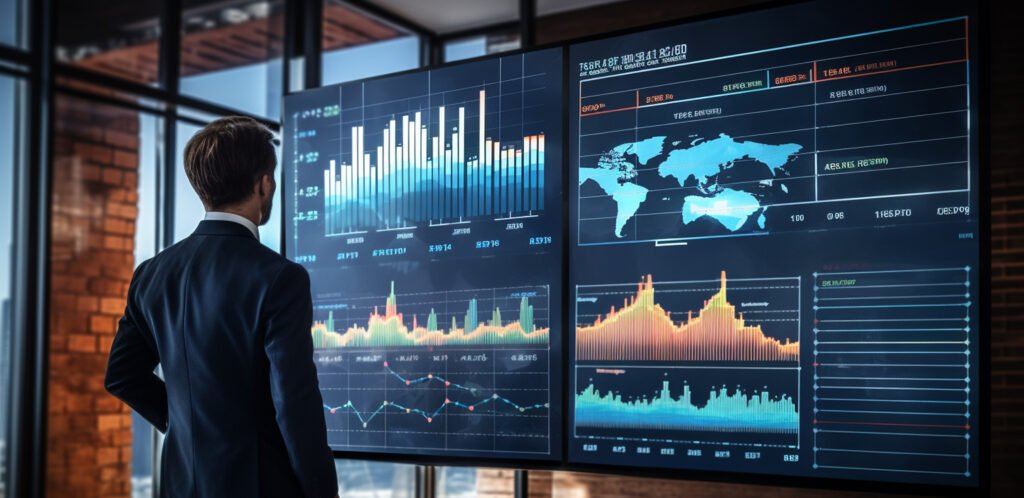Financial New Fraud In The Digital Age In India
Financial New Fraud In The Digital Age In India INTRODUCTION India’s sudden digitalization has transformed banking, finance, and commerce. E-wallets and UPI payments to fintech apps and digital loans, ease has transformed the financial experience for millions. But behind this revolution lurks a dark shadow: Financial New Fraud is on the rise at an alarming rate. Those were the times when only cheques were forged or documents tampered with. Contemporary criminals are smart, connected, and becoming more sophisticated. As technology is being used more and more, so is the threat—particularly to unsuspecting or uninformed users. This article discusses the various types of Financial New Fraud arriving in India, notable examples, new techniques used by cybercrime professionals, regulatory reaction, and how to keep yourself or your business safe in cyberspace. 1. What is Financial New Fraud? Financial New Fraud describes new, tech-savvy financial crimes using digital platforms, online banking portals, fintech features, and consumer psychology to dupe and steal money or personal details. These scams are usually: Real-time and auto Social engineering driven Made possible by digital loopholes or weak security protocols Target banks, fintech players, small businesses, and individual consumers. 2. The Emergence of Financial New Fraud in India India has more than 1.2 billion mobile subscribers and more than 300 million UPI accounts, making it favorable to digital financial expansion—and not just to digital growth. Key Statistics: Digital scams increased more than 30% year-on-year between 2022 and 2024, as per RBI. Almost half of the reported cases of banking frauds are now digital. The rural regions have witnessed a steep increase from first-time internet users. The Financial New Fraud wave is commensurate with fintech growth, govt digitalization efforts, and growing digital reliance post-COVID. 3. Most Popular Means of Financial New Fraud in India 3.1 UPI Fraud Victims unknowingly approve the transactions. 3.2 SIM Swap Fraud Cyber attackers clone your mobile SIM for intercepting OTPs and stealing banking credentials. 3.3 Phishing & Smishing Spams or SMS from banks lure users to provide banking or personal information. 3.4 Loan App Scams Illegal loan apps provide instant loans but blackmail victims or drain personal data resulting in blackmail. 3.5 Scam Investment Platforms Scammers create replica crypto, brokerage, or mutual fund apps with a high return guarantee and go missing with clients’ money. 3.6 ATM Skimming Hidden devices on ATMs steal PINs and card numbers to make fraudulent transactions. 3.7 KYC Verification Frauds People are called and asked to maintain KYC up-to-date and are tricked into revealing credentials or installing malware. New Financial New Fraud patterns are designed to seem real, pushing success rates and destruction higher. 4. Case Studies: India Real Scenarios Case Study 1: UPI Refund Scam A Mumbai resident faced a loss of ₹92,000 after receiving a phishing link in the disguise of a refund on WhatsApp. The link triggered the UPI collect request, which he unknowingly accepted. Case Study 2: SIM Swap Scam on Entrepreneur Cyber hackers replicated a Delhi businessman’s SIM and siphoned out ₹10 lakhs from his associated bank accounts within minutes by evading OTP security measures. Case Study 3: Illegal Loan App Tragedy Hyderabad-based software engineer borrowed a ₹5,000 loan from an RBI-approved app. He was threatened with morphed images within days, with severe repercussions. These cases establish the debilitating emotional and fiscal cost of Financial New Fraud and the need for vigilance and immediate action. 5. Modern Financial Scammers’ Strategies Social Engineering: Impersonators working in the guise of bank officials or technicians. AI Voice Cloning: Voice snippets to clone actual individuals. Malware and Remote Access Tools: Phone hijacking to steal data. Fake Apps and Sites: Impersonating authentic apps to deceive. Deepfake KYC Videos: Employed to avoid onboarding onto fintech platforms. Financial New Fraud is driven by technological innovation—but in the wrong hands. 6. Target Audiences of Financial New Fraud Individuals Specific first-time digital consumers, older adults, or rural customers not aware of fraud intentions. Small Businesses Too many times, they lack any cybersecurity setup to protect themselves against invoice fraud or spoofed payment links. Financial Institutions Banks and NBFCs are exposed to sophisticated attacks such as insider fraud, DDoS, and synthetic identity fraud. Fintech Platforms Real-time onboarding processes and high-value transactions expose them to manipulation. No one is safe. All online consumers are potential victims of Financial New Fraud today. 7. Legal and Regulatory Framework RBI Guidelines Two-factor authentication of online transactions Limits liability for customers reporting fraud in a timely manner Blacklists illicit lending apps with Google coordination Indian Cybercrime Laws Regulated by the Information Technology Act, 2000 Complaints of Financial fraud are now actively monitored by cyber police cells In spite of these, enforcement issues and user lack of awareness enable Financial New Fraud to continue. 8. How to Protect Yourself from Financial New Fraud For Individuals Never give OTPs, PINs, or passwords. Check UPI transactions prior to sanctioning. Make use of RBI-approved lending and investment apps. Enable alerts for every transaction. Not use public Wi-Fi for banking purposes. For Businesses Train employees in identifying fraud. Use secure payment channels. Enable robust customer authentication for transactions. Routine cybersecurity scans. For Fintechs and Banks Use AI-powered fraud detection programs. Monitor out-of-normal transaction patterns. Collaborate with CERT-In and RBI in threat intelligence. Maintain updated customer education materials. Proactiveness is the sole defense against this new web of Financial New Fraud. 9. Technology’s Role in Combating Financial New Fraud AI & Machine Learning Identify suspected behavior patterns in real-time Prevent account takeover and spoofed KYC attempts Blockchain Enhances traceability and transparency of transactions Biometric Verification Prevents identity theft via fingerprint and facial recognition Digital Forensics Aids in tracking and investigating digital frauds after they have been committed Technology is both the cause and the cure in the era of Financial New Fraud. 10. Future of Financial Fraud in India As India moves towards a $1 trillion digital economy, fraud methods will only get more advanced. Be on the lookout for: AI-created scams with human intervention Smart device-based fraud (IoT) Deepfake-driven KYC and lending fraud Fraud
Financial New Fraud In The Digital Age In India Read More »









